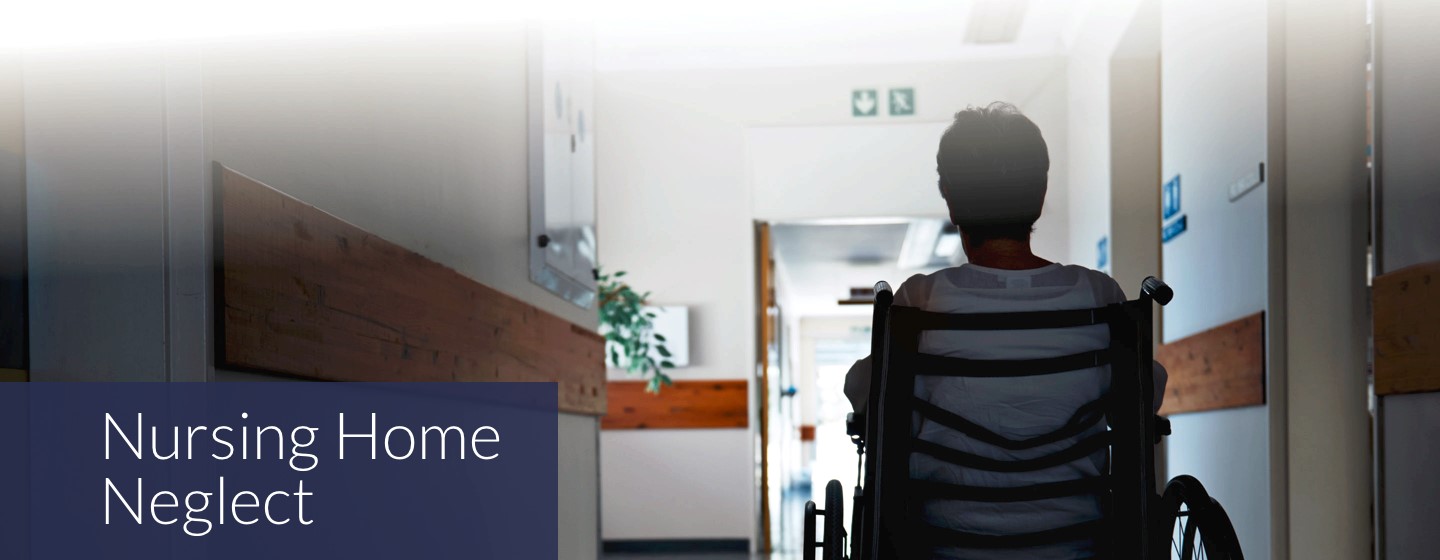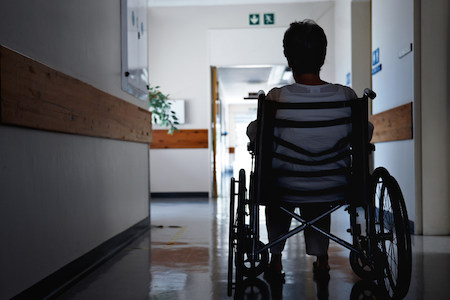“Certified Nursing Assistant arrested after police conducted an investigation stemming from two reported cases of nursing home abuse involving hand slapping and mouth squeezing on one patient, and hair pulling and nipple pinching inflicted upon another.”
“75-year-old resident attacked by Certified Nursing Assistant that choked and beat her, causing bruises, a broken wrist, and dislocated neck.”
“Charges filed in humiliation of an elderly nursing home patient for shaming incident due to soiled clothing, which inconvenienced paid staff.”
More than one-quarter of serious nursing home abuse cases are never reported to the police, according to an August 2017 alert released by the Office of Inspector General of the United States Department of Health and Human Services. These often horrific cases go unreported despite the fact that state and federal law require serious instances of abuse, neglect, or exploitation in nursing homes to be reported to law enforcement for possible criminal prosecution.
A primary reason such cases are infrequently reported is that the negligent, and too often intentional, acts of abuse, neglect, and exploitation committed by nursing home employees are not understood or appreciated by those being victimized and the perpetrators often work to keep family members in the dark.
Many times, the victim is simply too disabled to report the events that caused a physical or emotional injury. Other times, the inadequate or negligent medical and nursing oversight in the care and treatment of nursing home residents may not be recognized until it has already caused irreparable physical or emotional damage, even death, to the elderly or disabled victim. And in many cases, a victim may reasonably fear that reporting instances of abuse or neglect, even to family members, might subject them to even further neglect or abuse.
Dugan, Babij, Tolley, & Kohler can help you navigate available legal remedies to safeguard and protect your elderly and disabled loved ones and to ensure fair and just compensation when abuse or neglect in the nursing home has occurred. If you suspect nursing home elder abuse but are uncertain about what to do, contact us for a free consultation.
Nursing Home Negligence, Crimes and Violations
Nursing homes must be held legally responsible for negligence resulting in otherwise avoidable medical complications and personal injury. Avoidable medical conditions such as decubitus ulcers and bedsores, malnutrition, dehydration, undiagnosed and untreated infections, and preventable injuries from falls are often a sign of negligence or abuse. Conditions such as inadequate sanitation and hygiene, as well as regulatory violations related to licensing, maintenance and the general operations of a nursing home, are often illegal and can, in many circumstances, be prosecuted in a criminal court. These and other negligent acts and omissions causing patient injury warrant a thorough legal investigation and will often result in the filing of a civil lawsuit against the nursing home, its doctors, nurses, staff, administrators, and/or other responsible parties.
In addition, investigations into nursing home abuse claims may reveal criminal acts that include false imprisonment, physical or sexual assault, and financial or material exploitation, all of which may be prosecuted in the criminal court.
Nursing Home Neglect and Abuse Warning Signs
Transition to a nursing home is a major life event for the patient and their loved ones and even the most careful selection process cannot completely shield the disabled and the elderly from neglect, abuse or exploitation. Therefore, it is important to know the warning signs and to take certain actions, such as documenting the harm, notifying the responsible authorities, and promptly consulting with competent and experienced legal counsel.
While neglect can occur in many settings, these four categories of neglect are most common in nursing homes:
- Emotional or social neglect. The resident victim is repeatedly ignored, isolated emotionally and physically, or verbally embarrassed or humiliated by the nursing home staff.
- Personal hygiene neglect. The resident victim does not receive adequate assistance with laundry, cleaning, bathing, brushing their teeth, or other forms of personal hygiene.
- Basic needs neglect. The nursing home neglects to provide reasonable food, water, or a safe and clean environment for the resident victim.
- Medical and nursing neglect. The nursing home fails to provide adequate medical and nursing care, treatment, monitoring, attention, and prevention; medications for conditions and complications such as bed sores, infections, digestive ailments, and skin breakdown; or reasonable and necessary treatment for medical conditions such as hypertension, diabetes, cognitive disabilities or mobility impairments and concerns.
Recognizing Physical Neglect and Abuse
Abusive conduct might be manifest in physical evidence such as bruising, fractures, scratches, bites, and burns. It may involve the resident victim being pushed, hit, shoved, or slapped. In the most severe cases, physical abuse can involve threats or assaults with a weapon or other object; inappropriate touching or sexual violation; or, the unauthorized and improper use of restraints, similar to imprisonment.
Some signs that your loved one has experienced any type of physical abuse include:
- Delay between the injury occurring and the resident victim being provided necessary medical care.
- A history of injuries and treatment or hospitalizations for similar injuries.
- A varied or inconsistent explanation by the nursing home staff members or administrators of how or when the injury occurred and when it was first discovered.
- Inconsistent or implausible explanations of where the resident victim was injured and whether the event causing injury was witnessed by anyone.
- The resident victim being referred for medical treatment to different doctors or hospitals for injuries even though residing in the same nursing home.
- Newly tense or strained communications, interactions, and relationships with nursing home staff members or administrators.
- Avoidance or unexplained withdrawal by the resident victim from typical activities or social interactions that were previously enjoyed.
Dugan Babij Tolley & Kohler attorneys will provide understanding and compassionate counsel, guidance, and assistance in recognizing, verifying, and prosecuting claims of nursing home elder abuse or neglect, including identifying and interviewing key witnesses, notifying the proper authorities, securing the critical evidence needed to confirm that abuse or neglect occurred, and, if warranted, filing a legal case on behalf of you or your loved one.
Recognizing the Exploitation of the Elderly and Disabled
Financial and material exploitation of the elderly or disabled by nursing home staff is legally defined as the improper or illegal use of another individual’s funds, assets, or property. Nursing home patients are often viewed as easy targets and may be particularly vulnerable to many deceptive and often illegal practices. Examples include:
- Cashing a resident victim’s checks without permission or authorization.
- Forging a resident victim’s signature.
- Stealing or misusing a resident victim’s money or possessions.
- Deceiving or coercing a resident victim to sign legal documents, such as a waiver, contract, or will.
- Using a guardianship, conservatorship, or power of attorney in unintended, improper, or illegal ways.
Dugan Babij Tolley & Kohler attorneys provide legal advice and counsel to the victims of exploitation and will assist in recovering losses and obtaining any civil damages to which they may be entitled, ensuring that injuries, damages and losses are fairly and completely compensated for.
Living the Sunset Years With Dignity and Without Despair
As the loved one of a senior, you can play an essential role in preventing nursing home neglect, abuse, or exploitation to ensure that the sunset years of your loved one are passed in a safe and dignified manner. The most effective preventive measure is to remain active in their life and to stay alert to any signs that things are not as they should be. If you see something, say something, and immediately seek the guidance of a competent legal professional.
If you suspect elder neglect, abuse, or exploitation, ask your loved one if he or she is ok, feels safe, or is fearful. Take notes and if possible, with the permission of non-family members, record and date your conversations. Take photographs of any physical injuries and request the production of relevant medical records. Most critically, immediately report your concerns to the nursing home, elder abuse, and malpractice attorneys of Dugan Babij Tolley & Kohler for help in understanding and navigating the resident victim’s legal rights and recourse.
Contact our Nursing Home Malpractice Help Line to speak to an experienced attorney. Call (800) 408-2080. The well-being of your loved one may be at stake. We stand ready to help you understand their rights and the nursing home’s responsibilities under the law.

